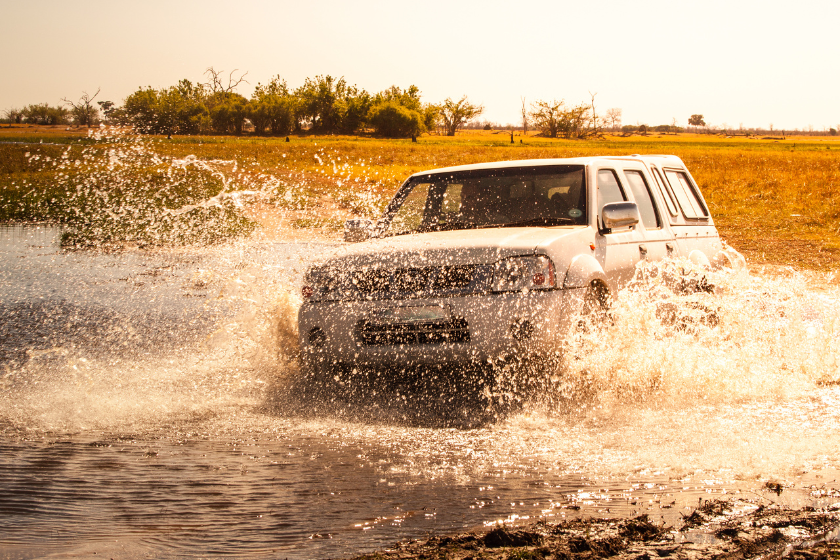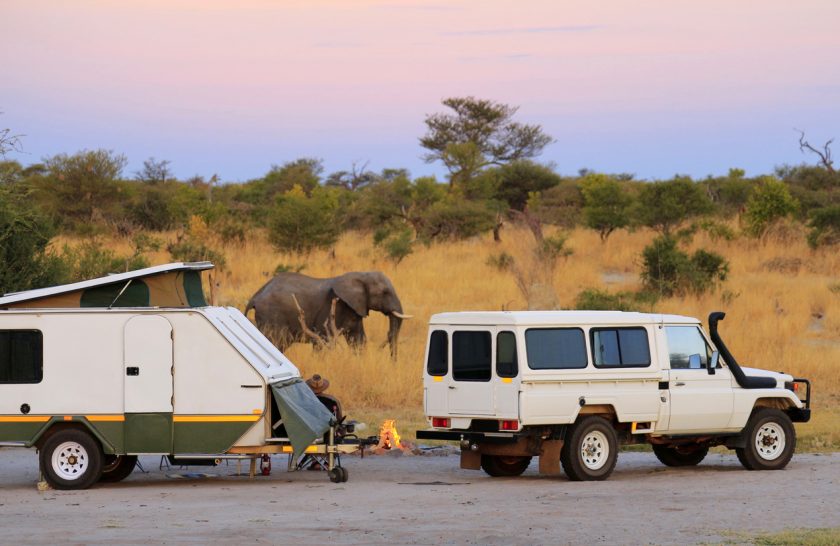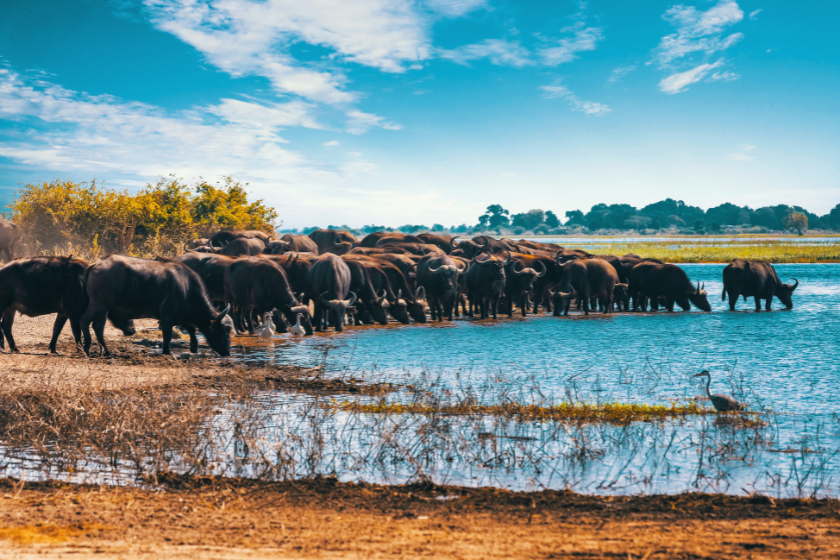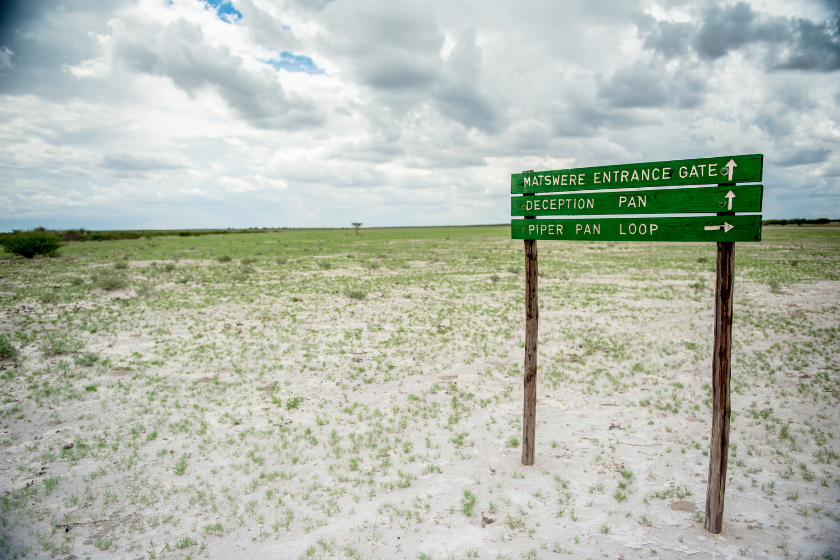
The All-New Renault Duster is Here
After a two-year absence from the South African market, the mighty Renault Duster is back...
 12 March 2025
12 March 2025 
With its diverse landscapes and abundant wildlife, Botswana is a bucket-list destination for self-drive safaris. Whether you’re a first-timer or a seasoned 4×4 enthusiast, there are a plethora of routes to explore.
From the stark Kalahari Desert to the sprawling Makgadikgadi Salt Pans and the riverbanks of Chobe National Park, a self-drive adventure in Botswana offers an unforgettable experience, as long as you’re prepared. In this article, we’ll take a closer look at some safety tips worth considering before you venture out onto the trails.

Off-road on a safari in Chobe National Park, Botswana
Self-drive safaris are not for the faint of heart. The majority of the time, you’ll be taking on challenging trail conditions. Research driving time and road conditions, as well as weather conditions and any possible detours, should your first route become impassable.
This is particularly important in the wet season, when rainfall is high. Decide on the best 4×4 to hire in Botswana for the terrain.
If this is your first time tackling terrain in a 4×4, getting to grips with your vehicle and its features is essential. Many 4×4 rental operators offer short but thorough 4×4 driving courses that will stand you in good stead for your self-drive safari. Ask your rental guide to take you through all the equipment and how to use recovery gear like sand ladders, high-lift jacks, and tow ropes.
Road signage in Botswana isn’t great, so you’ll need a GPS unit. Also, check out Road Trip Explorer for planning and inspiration. As an extra precaution, it’s worth taking a paper map with you too; just make sure it’s up-to-date.
Don’t be afraid to ask locals about road conditions – they’re friendly and will likely have the most current information on various routes.

Elephant sighting on a self-drive safari in Botswana
There aren’t any fuel stations outside of Botswana’s major cities, so even if your 4×4 has an extra-capacity fuel tank, it’s a good idea to fill up your jerry cans. Traveling through sandy conditions can be heavy on fuel consumption, so it’s always worth carrying extra fuel.
Make sure you have more than enough supplies—pack plenty of food, medication, a first-aid kit, and at least 100 liters of clean water. This way, if you get stuck, you won’t have to worry about going hungry or not having drinking water.
Remember that you’re traveling in unfenced, wildlife-rich areas where animals of all sorts can wander across the road. This makes traveling after dark extremely dangerous, and it should be avoided at all costs. Make sure you have plenty of time to reach your campsite or accommodations before sunset – this will also make setting up your camp easier.

Cape Buffalo at Chobe River in Botswana
Wild animals can be unpredictable and dangerous, so never leave your vehicle to get closer to the wildlife and only get out at designated, safe areas such as rest stops.
Never split an elephant herd, as the mothers are very protective of their babies and could become agitated if separated from them. Avoid hanging out of your vehicle’s windows and never stand on the roof – you’ll still have plenty of memorable encounters with wildlife in Botswana.
Mobile reception can be spotty in Botswana, especially in the National Parks and Reserves. Even if you have a local SIM card, you could still be caught without a signal. Make sure your rental 4×4 is equipped with a satellite phone so you can ask for help in the event you get stuck or have an unforeseen breakdown.

Sandy, empty roads with road signs in rural parts of Botswana
Stick to the speed limit and obey all traffic rules and regulations. Unlike some other countries in Africa, bribery and corruption are frowned upon in Botswana. If you are caught breaking the speed limit, pay your fine, and always show the authorities the necessary respect. Being courteous will go a long way.
The northern parts of Botswana are moderate malaria-risk areas. We’d recommend consulting with your pharmacist or travel clinic about anti-malaria medication.
Wear long-sleeved shirts, trousers, and closed shoes in the evenings, and come prepared with insect repellant. If you’re camping, be sure to spray your tent with mosquito spray and keep the flaps closed to avoid any unwelcome visitors. If you’re staying at a lodge, make use of the mosquito netting and keep doors and windows closed.
By keeping these safety tips in mind, you can guarantee yourself a safe and unforgettable self-drive safari in Botswana. Considering a holiday of your own? Contact Drive South Africa today to rent a 4×4 for your Botswana trip.